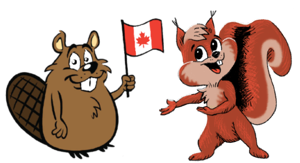Nunavut is a new Canadian territory that came into being on April 1, 1999, through the division of the Northwest Territories.
Eighty-two per cent of Nunavut's people are Inuit. Since the majority of voters in Nunavut are Inuit, they control their own legislative assembly through a form of self-government under which non-Inuit residents are also guaranteed political rights.
The creation of the Nunavut territory is the result of two agreements: the Nunavut political accord, and the Nunavut land claims agreement.
A Nunavut-wide Inuit organization called Nunavut Tunngavik Incorporated (also known by the commonly-used acronym "NTI") is responsible for administering the money and land that Nunavut Inuit now own under their land claim agreement, for ensuring that governments and others carry out their legal obligations, and for promoting Inuit language and culture. NTI is not, however, responsible for creating the government of Nunavut.
The Nunavut political accord laid the foundation for the Nunavut Act, the federal law that serves as Nunavut's constitution.
More information
More information
Subcategories 17
Related categories 4
Sites 2
Group looking after Inuit land claims. Includes history and overview, news releases, staff, and election information.
Articles, travel information, lodging, tours, sports and recreation, nature information, and government details.
Articles, travel information, lodging, tours, sports and recreation, nature information, and government details.
Group looking after Inuit land claims. Includes history and overview, news releases, staff, and election information.
Other languages 1
